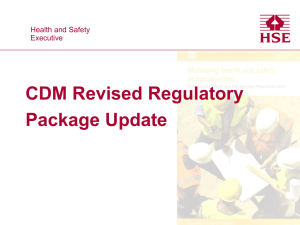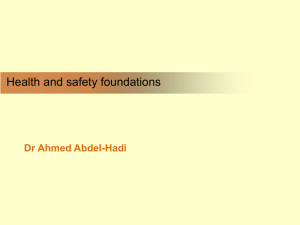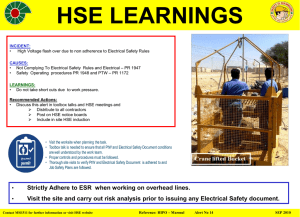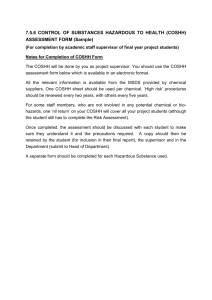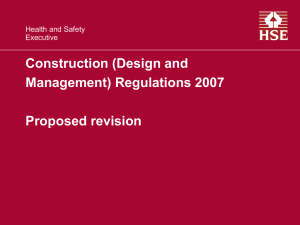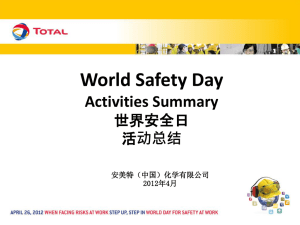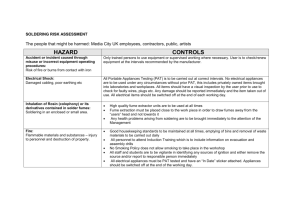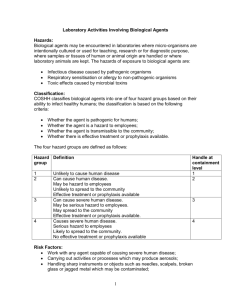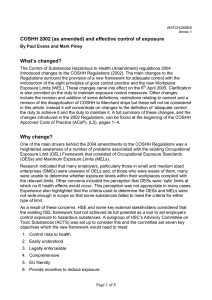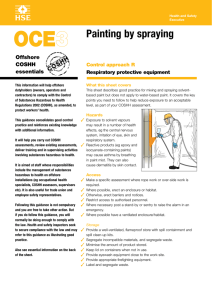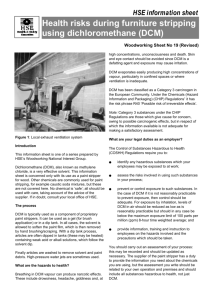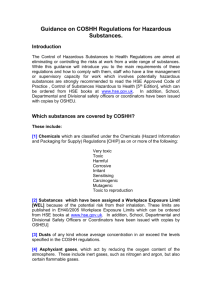COSHH ACoP update blog
advertisement
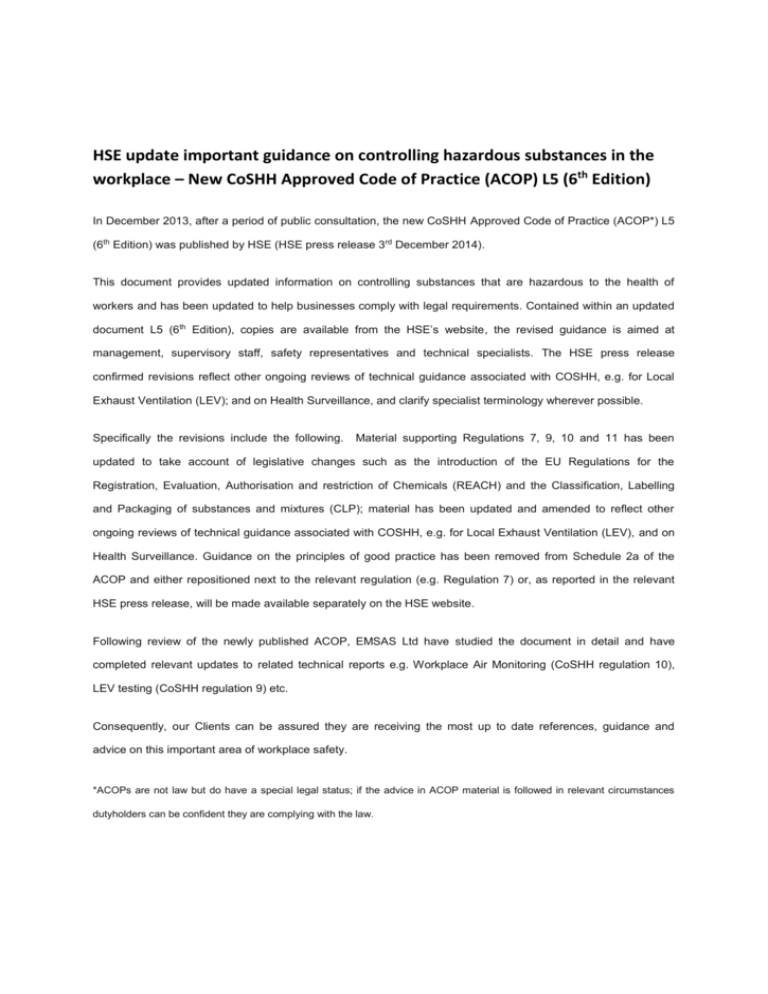
HSE update important guidance on controlling hazardous substances in the workplace – New CoSHH Approved Code of Practice (ACOP) L5 (6th Edition) In December 2013, after a period of public consultation, the new CoSHH Approved Code of Practice (ACOP*) L5 (6th Edition) was published by HSE (HSE press release 3rd December 2014). This document provides updated information on controlling substances that are hazardous to the health of workers and has been updated to help businesses comply with legal requirements. Contained within an updated document L5 (6th Edition), copies are available from the HSE’s website, the revised guidance is aimed at management, supervisory staff, safety representatives and technical specialists. The HSE press release confirmed revisions reflect other ongoing reviews of technical guidance associated with COSHH, e.g. for Local Exhaust Ventilation (LEV); and on Health Surveillance, and clarify specialist terminology wherever possible. Specifically the revisions include the following. Material supporting Regulations 7, 9, 10 and 11 has been updated to take account of legislative changes such as the introduction of the EU Regulations for the Registration, Evaluation, Authorisation and restriction of Chemicals (REACH) and the Classification, Labelling and Packaging of substances and mixtures (CLP); material has been updated and amended to reflect other ongoing reviews of technical guidance associated with COSHH, e.g. for Local Exhaust Ventilation (LEV), and on Health Surveillance. Guidance on the principles of good practice has been removed from Schedule 2a of the ACOP and either repositioned next to the relevant regulation (e.g. Regulation 7) or, as reported in the relevant HSE press release, will be made available separately on the HSE website. Following review of the newly published ACOP, EMSAS Ltd have studied the document in detail and have completed relevant updates to related technical reports e.g. Workplace Air Monitoring (CoSHH regulation 10), LEV testing (CoSHH regulation 9) etc. Consequently, our Clients can be assured they are receiving the most up to date references, guidance and advice on this important area of workplace safety. *ACOPs are not law but do have a special legal status; if the advice in ACOP material is followed in relevant circumstances dutyholders can be confident they are complying with the law.
